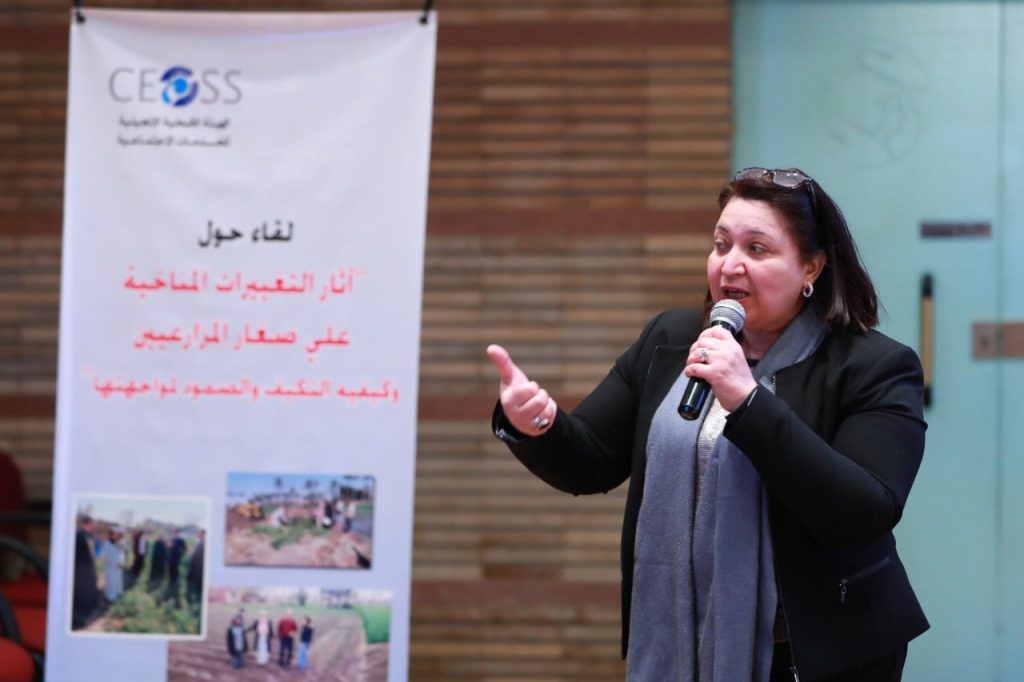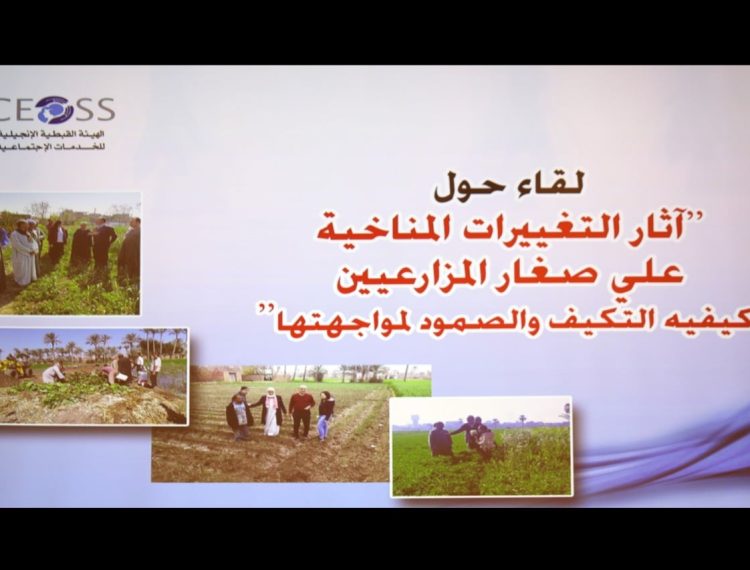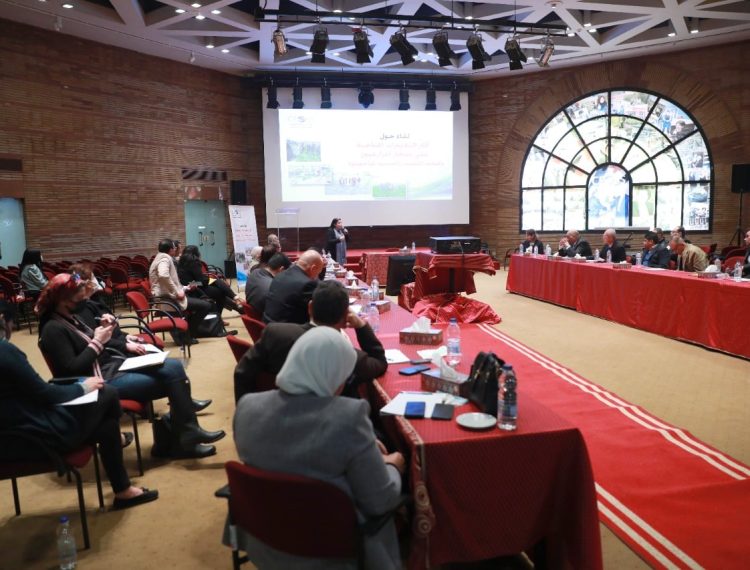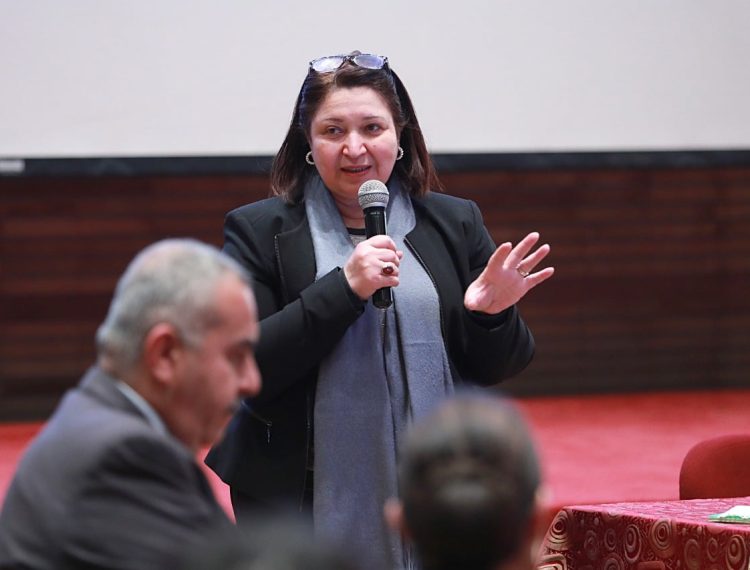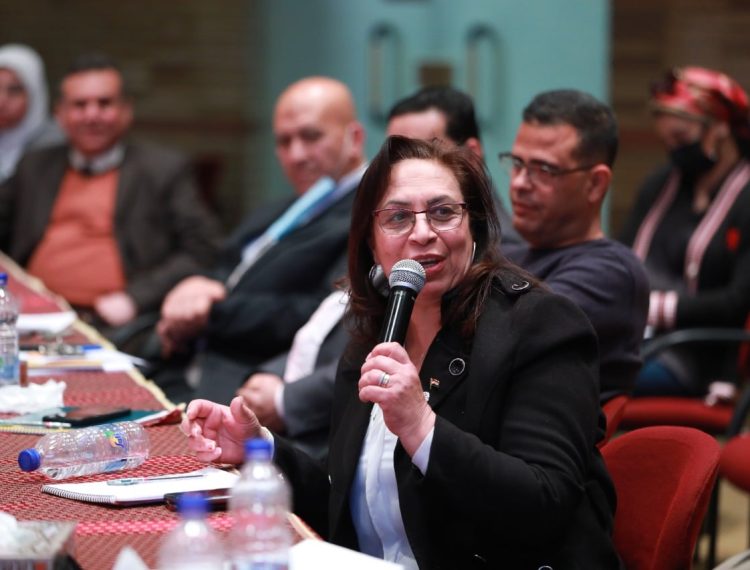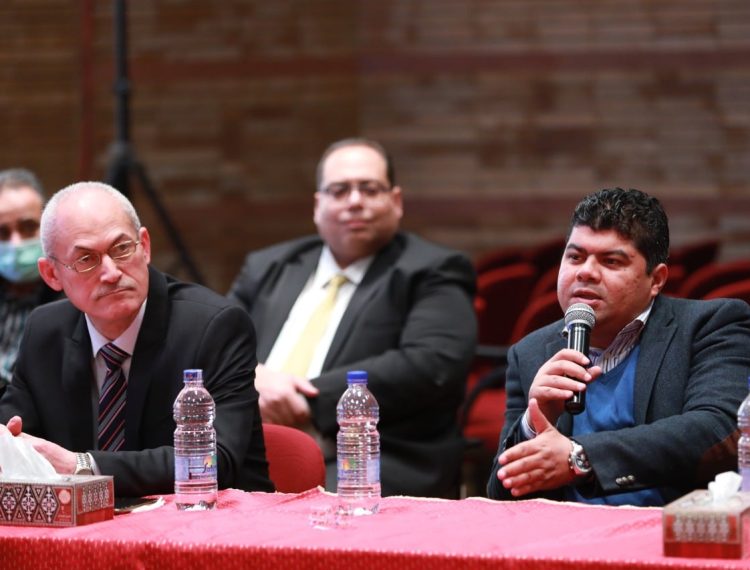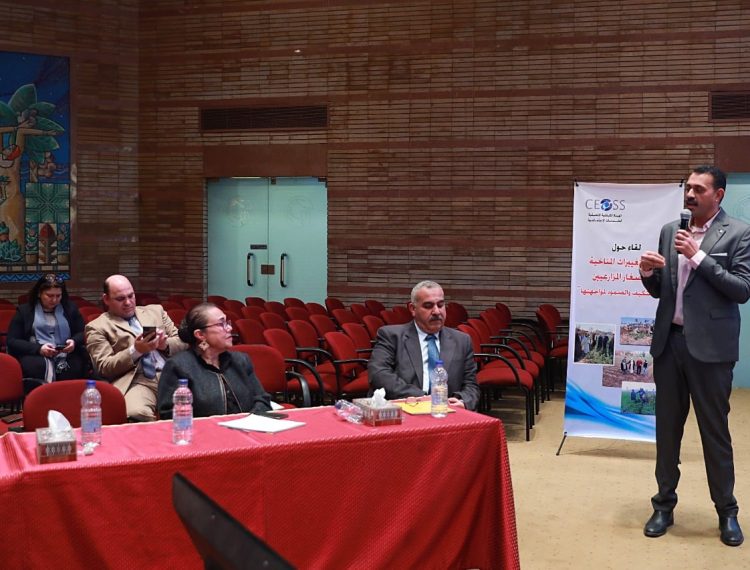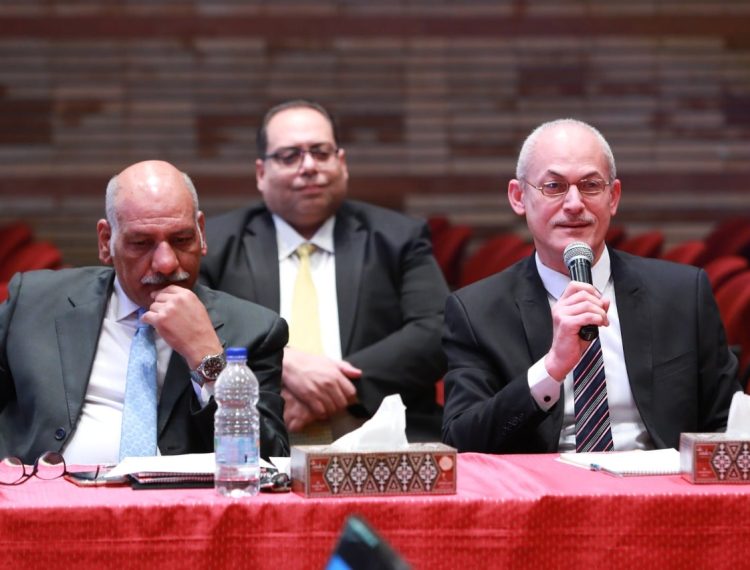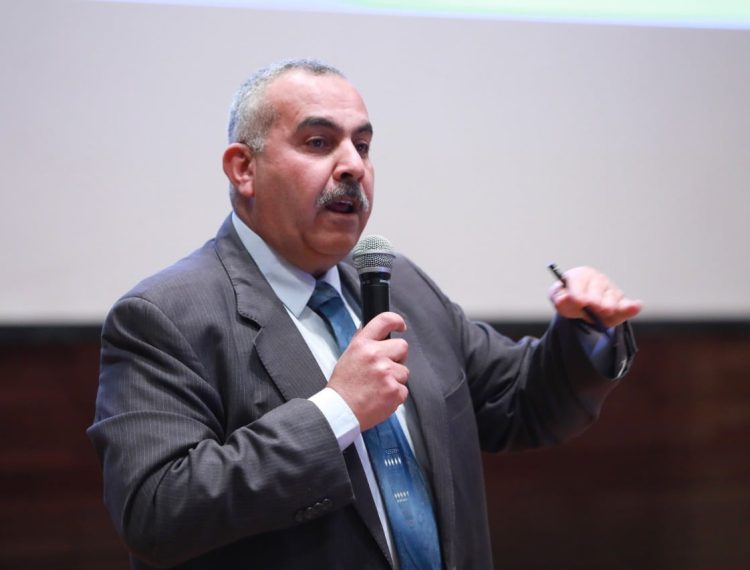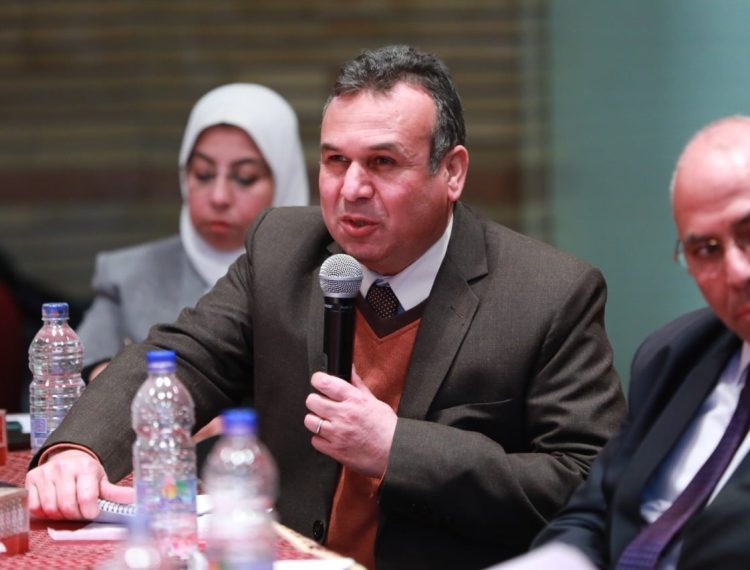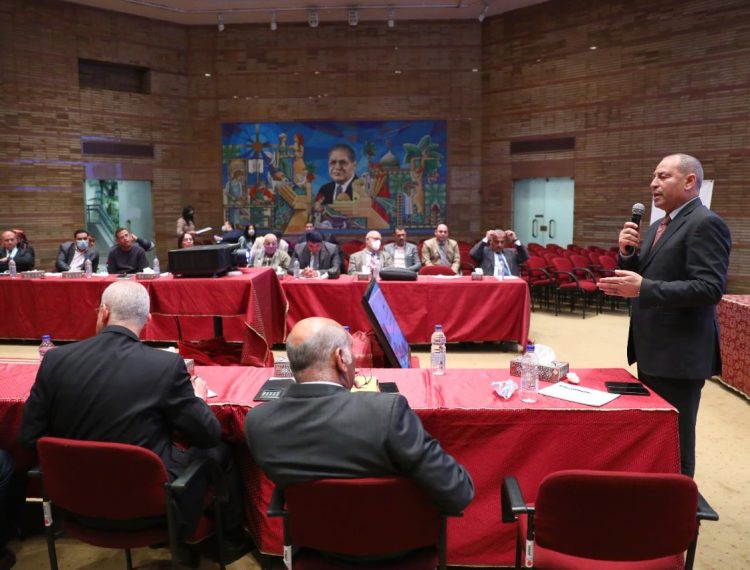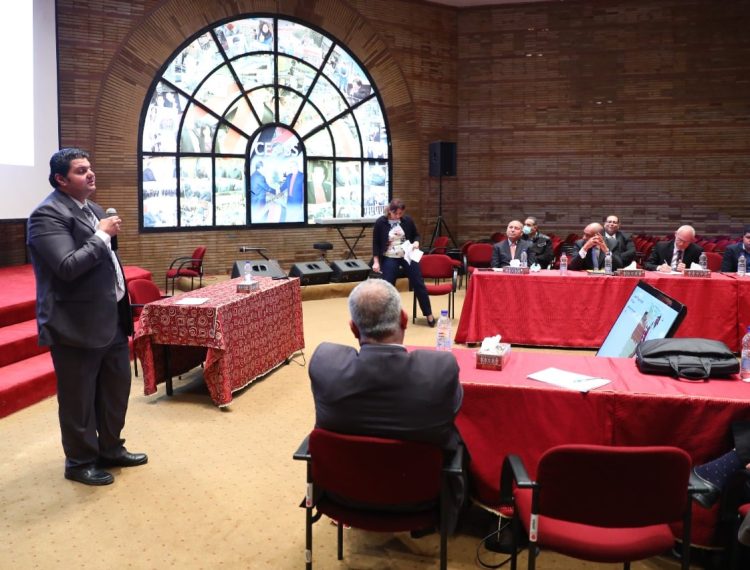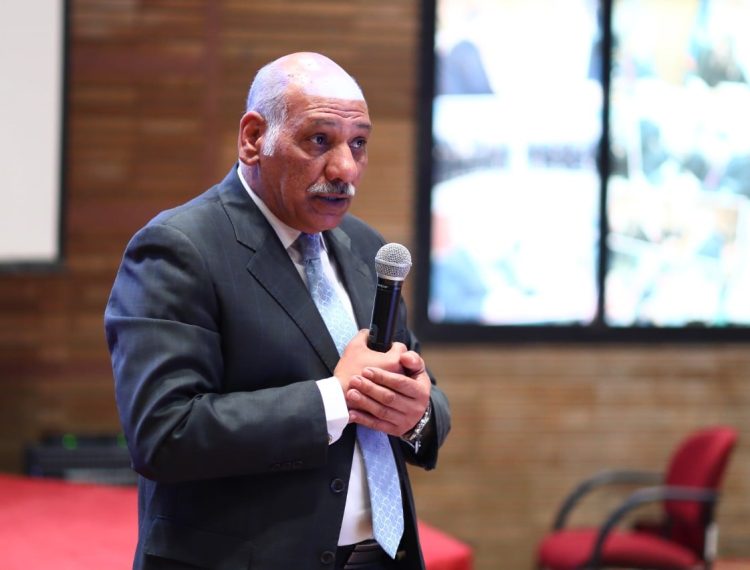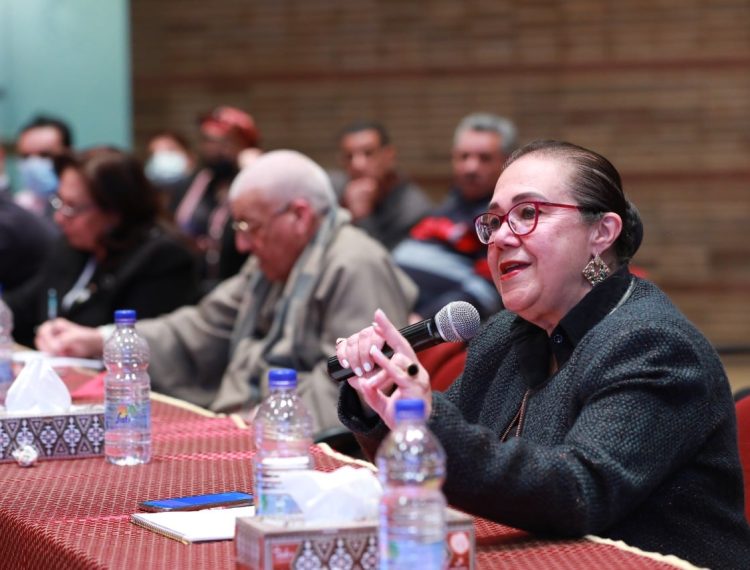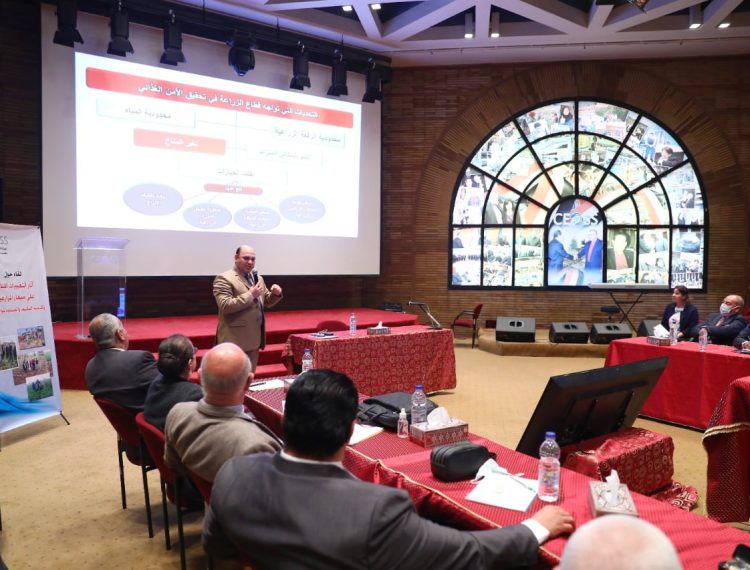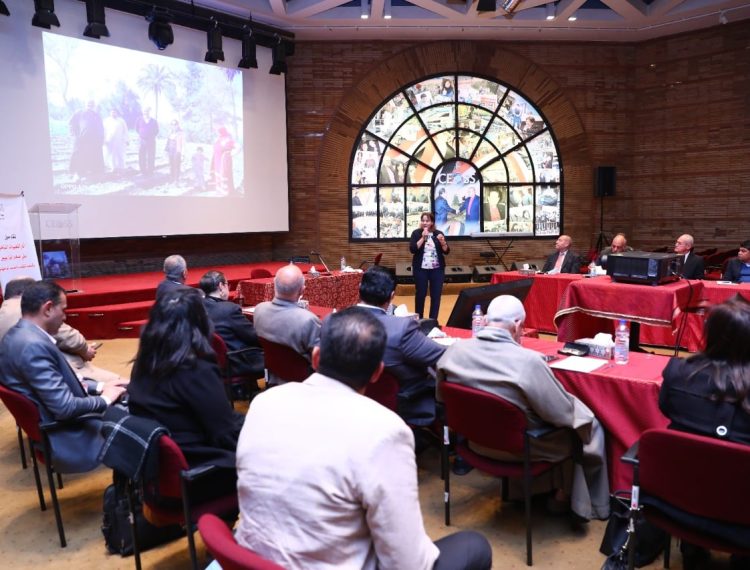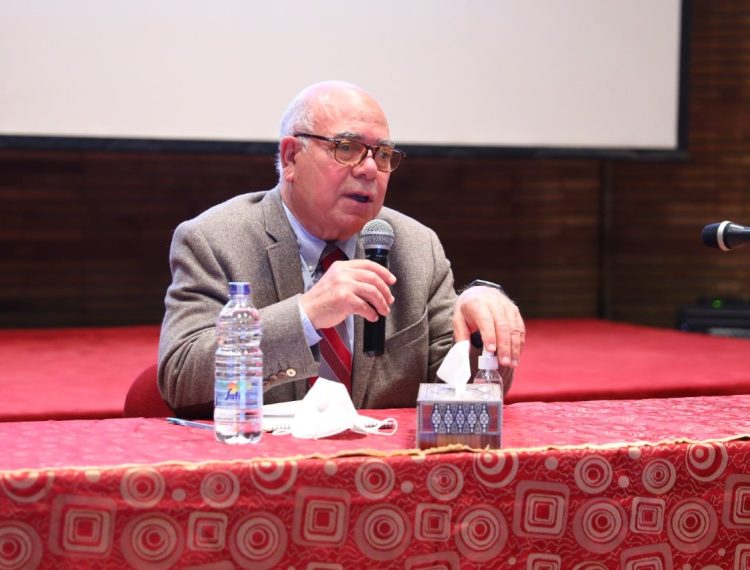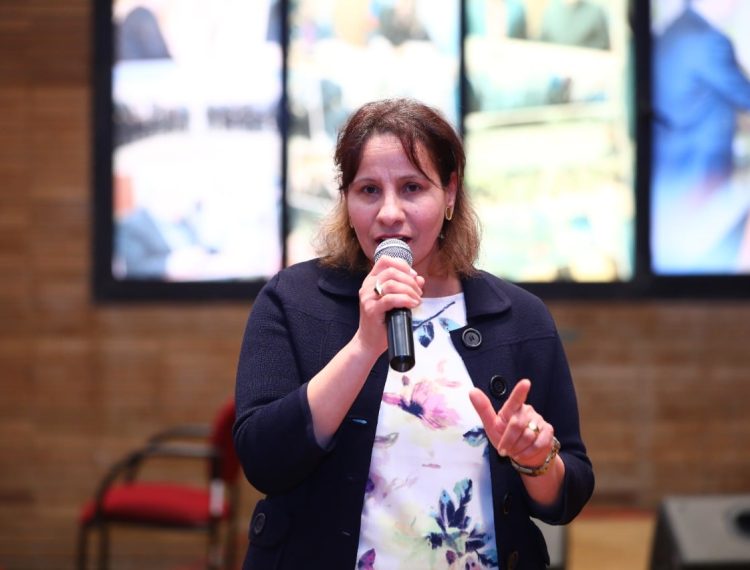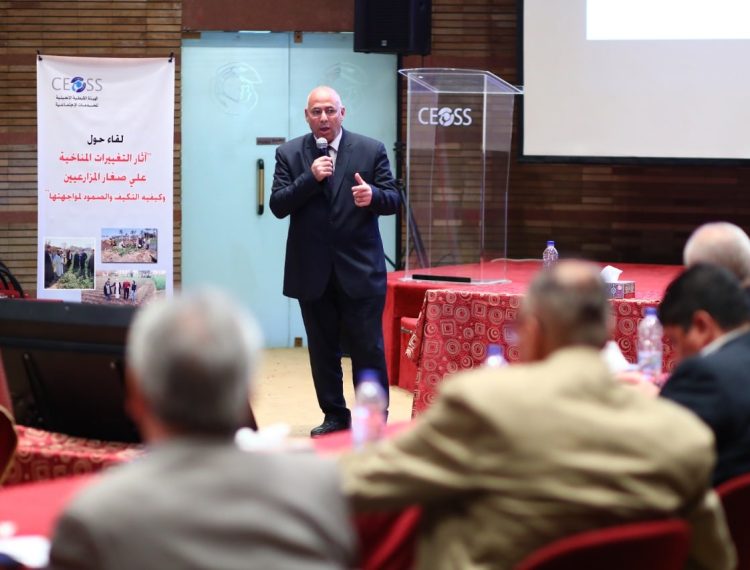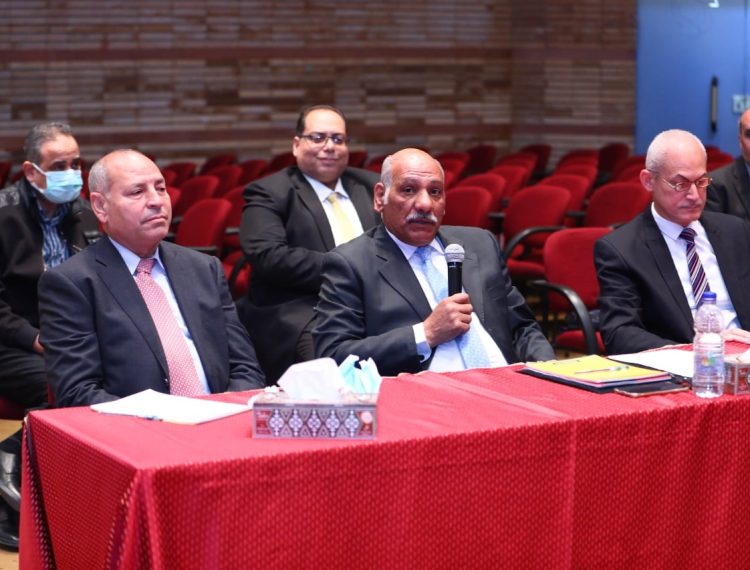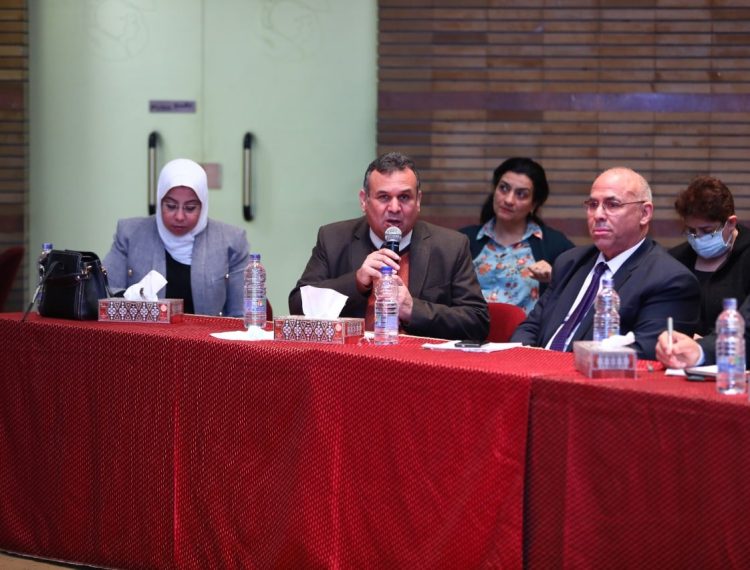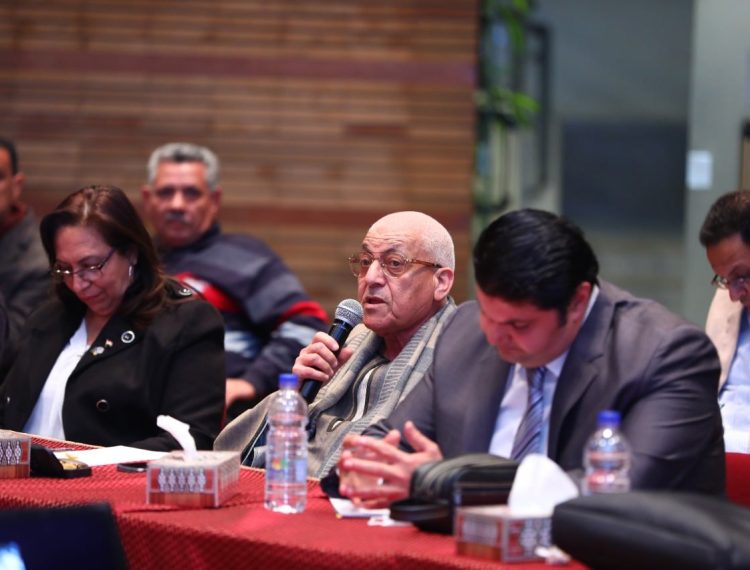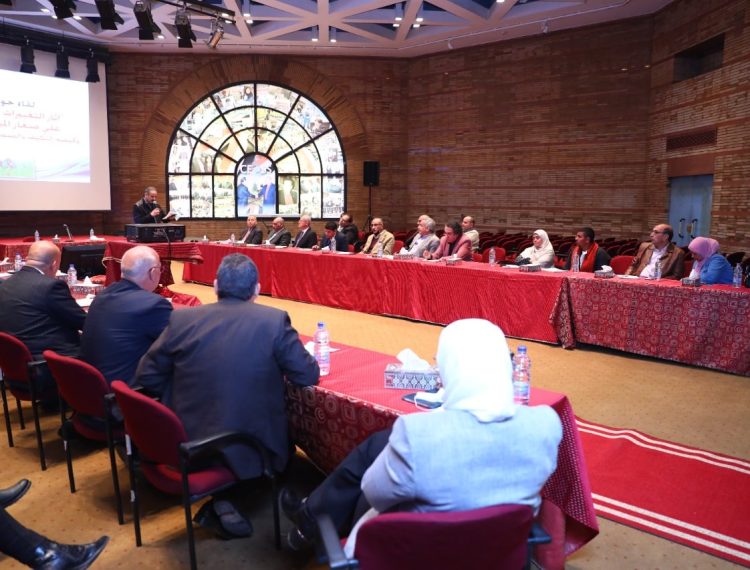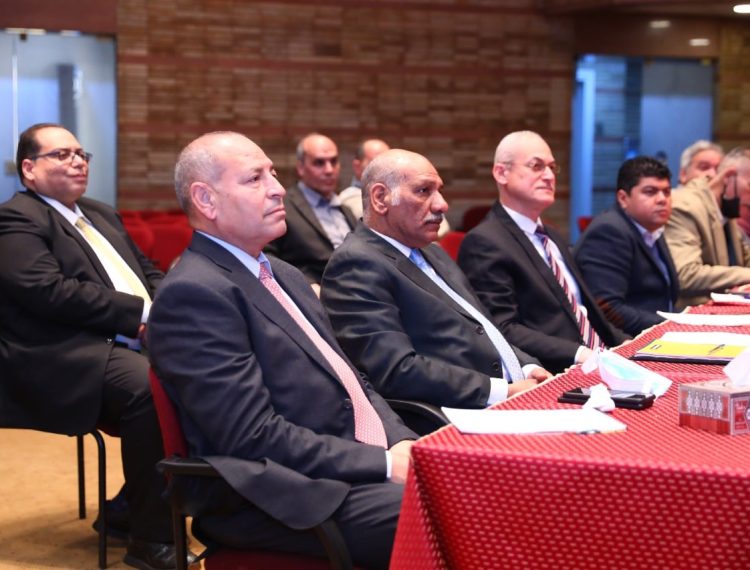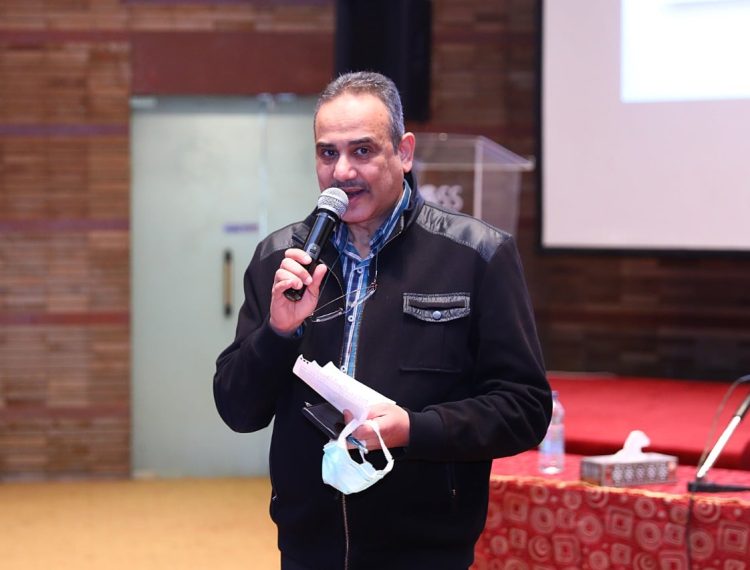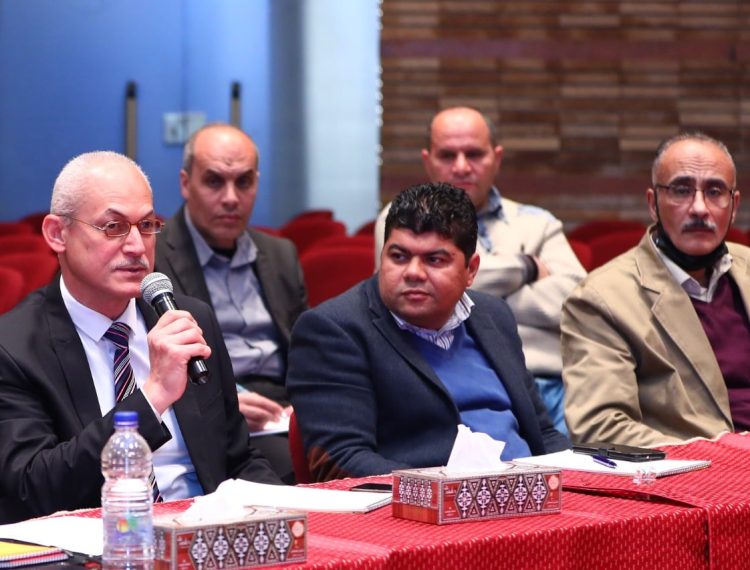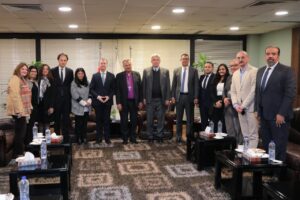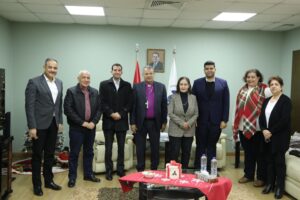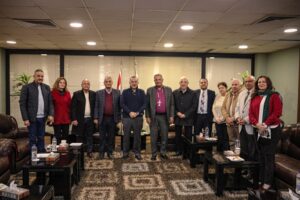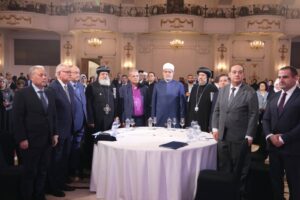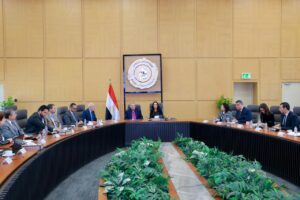Yesterday, Tuesday, the Local Development Unit of the Coptic Evangelical Organization for Social Services organized a meeting on the effects of climate change “the economic and environmental effects” on small farmers and how to adapt and withstand to face them, in compliance with international, regional and national trends and strategies.
For her part, Margaret Sarofim, head of the Development Sector at the Coptic Evangelical Organization, said: “The Evangelical Organization seeks to invest the year 2022, the year of civil society, in agreement and in unifying efforts of the civil society institutions and the government partners, to come up with an action plan that includes the contributions of all parties to deal with the challenges resulting from the climate change.”
Saroufim added: “The meeting resulted in a number of recommendations, the most important of which was activating supportive policies to become loyal and supportive of small farmers, and constantly developing flexible institutional frameworks that are able to adapt to climate changes, in addition to activating the legislative frameworks that were issued starting in 2014 to develop the agricultural sector in particular, such as: the laws of social solidarity, insurance against risks and catastrophes, and contract farming.”
A number of partner NGOs, and a number of small farmers, participated in the meeting, as well as a group of officials and those who are interested in the relevant ministries, from the Ministry of Environment and Agriculture, the Egyptian universities and colleges of agriculture, and the Desert Research and Media Center; Prof. Dr. Mahmoud El-Zabalawy, dean of the Faculty of Agriculture at Mushtuhur Benha University’s; Major General Hamdi El-Deeb, adviser of the Minister of Environment; Eng. Ibrahim Saber, deputy governor of Cairo for the Eastern Region; Mrs. Hoda El-Bakr, director of the Arab Network for Civil Society Organizations, and Dr. Saber Othman, executive director of the Environmental and Climate Change and Sustainability Consulting Company “ECSCO”; Dr. Mohamed Helmy Nawar, emeritus professor at the department of rural sociology and agricultural consultancy at the Faculty of Agriculture, Cairo University; Dr. Mohamed Fahim, Head of the Climate Research Center at the Ministry of Agriculture; Dr. Ayman Al-Refai, from the Central Administration for Climate Change, Ministry of Environment; Dr. Tarek Shalaby , Director General of Risks and Adaptation to Climate Changes from the Environmental Affairs Agency; Prof. Dr. Hala Yousry, Desert Research Center; Eng. Hassan Zayed, undersecretary of the Ministry of Agriculture in Qalyubia; Eng. Ahmed Mustafa, head of the Central Administration for Inspection and Environmental Compliance; Prof. Dr. Mohamed Mahmoud Abdel Aal, Faculty of Agriculture in Moshtuhur, Benha University; Dr. Mohamed Eid, Faculty of Agriculture in Moshtuhur; Dr. Wael Mohamed Salah, researcher of the Agricultural Research Center, Department of Animal Production; and Dr. Amira Shukri, Desert Research Center.

